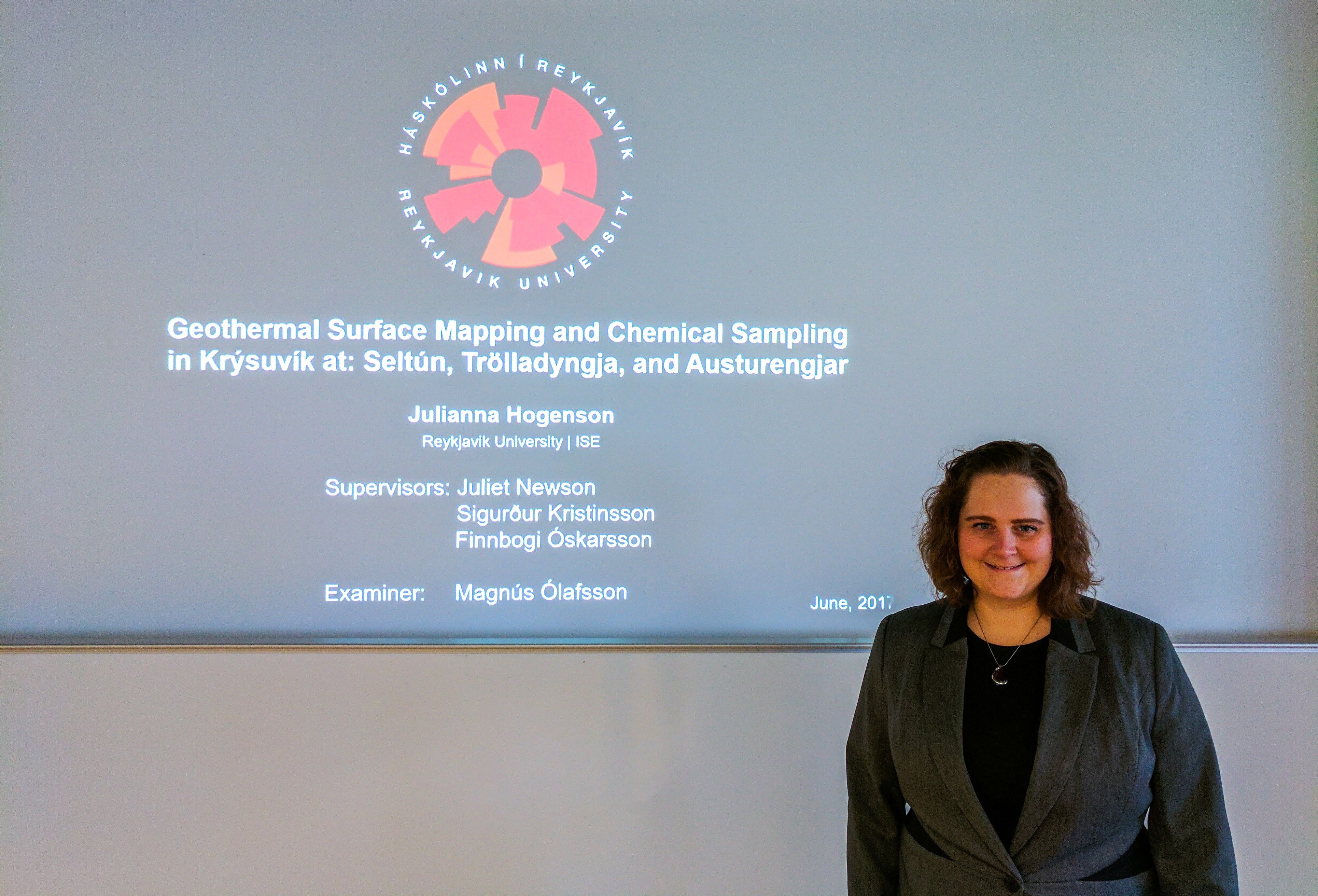MSc Thesis: Geothermal Surface Mapping and Chemical Sampling in Krýsuvík at Seltún, Trölladyngja, and Austurengjar
Julianna Hogenson successfully defends her master's thesis
REYKJAVIK, June 1 – Master's candidate of Sustainable Energy Sciences, Julianna Hogenson, has just successfully delivered her master's thesis project, conducting geothermal surface mapping and chemical sampling in Krýsuvík at Seltún, Trölladyngja, and Austurengjar. Throughout her work, Julianna was supervised by ÍSOR geologist, Sigurður Garðar Kristinsson, and ÍSOR chemist, Finnbogi Óskarsson, along with Dr. Juliet Newson, Director of the Iceland School of Energy here at Reykjavik University.

Julianna details her work, stating that the aim of her study was to assess, test, and analyze the geothermal surface manifestations in the Krýsuvík volcanic system on the Reykjanes Peninsula. This process includes the following steps:
- Geothermal surface manifestation mapping of the soil.
- Soil and geothermal feature temperature sampling.
- Geochemical steam sampling and geothermometer analysis.
- Surface boundary soil temperature-time series data sampling.
In addition, the temperature time series data was heavily influenced by precipitation and proved to be semi-inconclusive. The combination of the geothermal mapping and geochemical results showed a possible gradual heating of the geothermal system, but due to unreliability of the data the reservoir most likely is maintaining consistent temperatures.
Congratulations Julianna on an excellent thesis!
